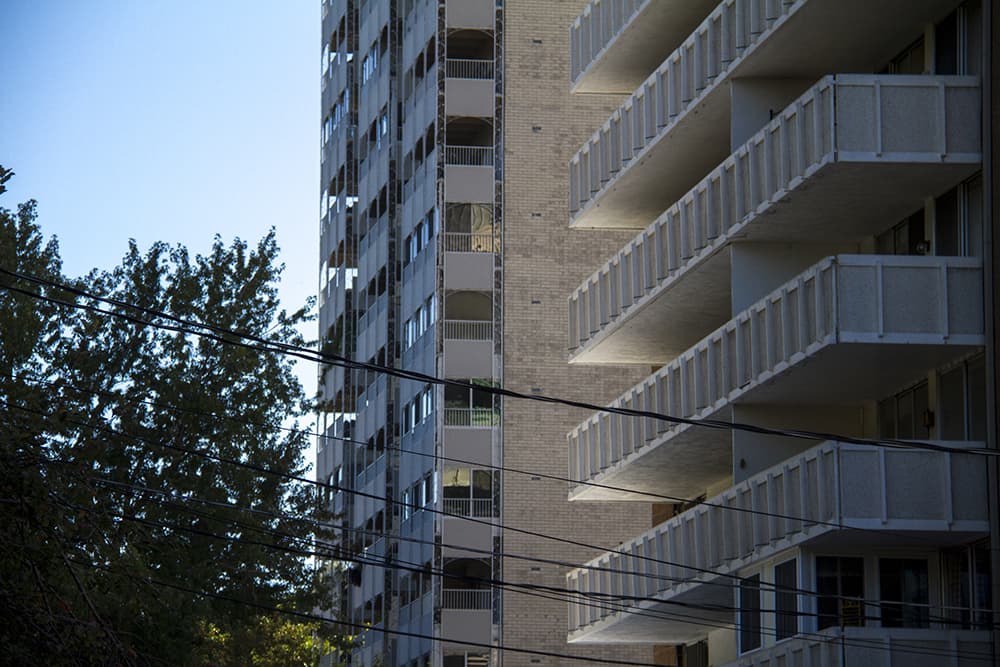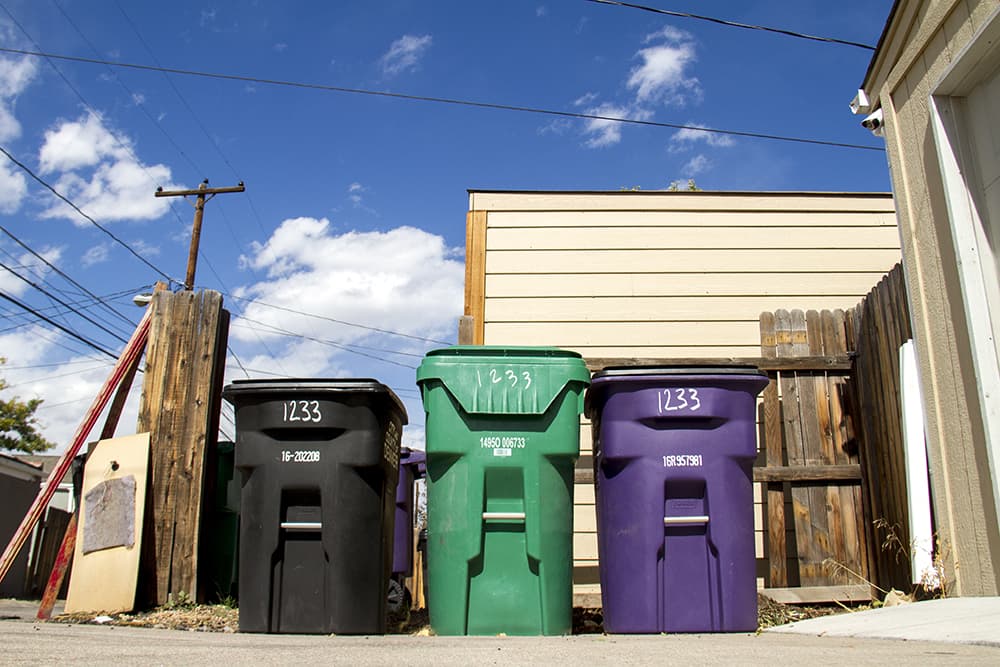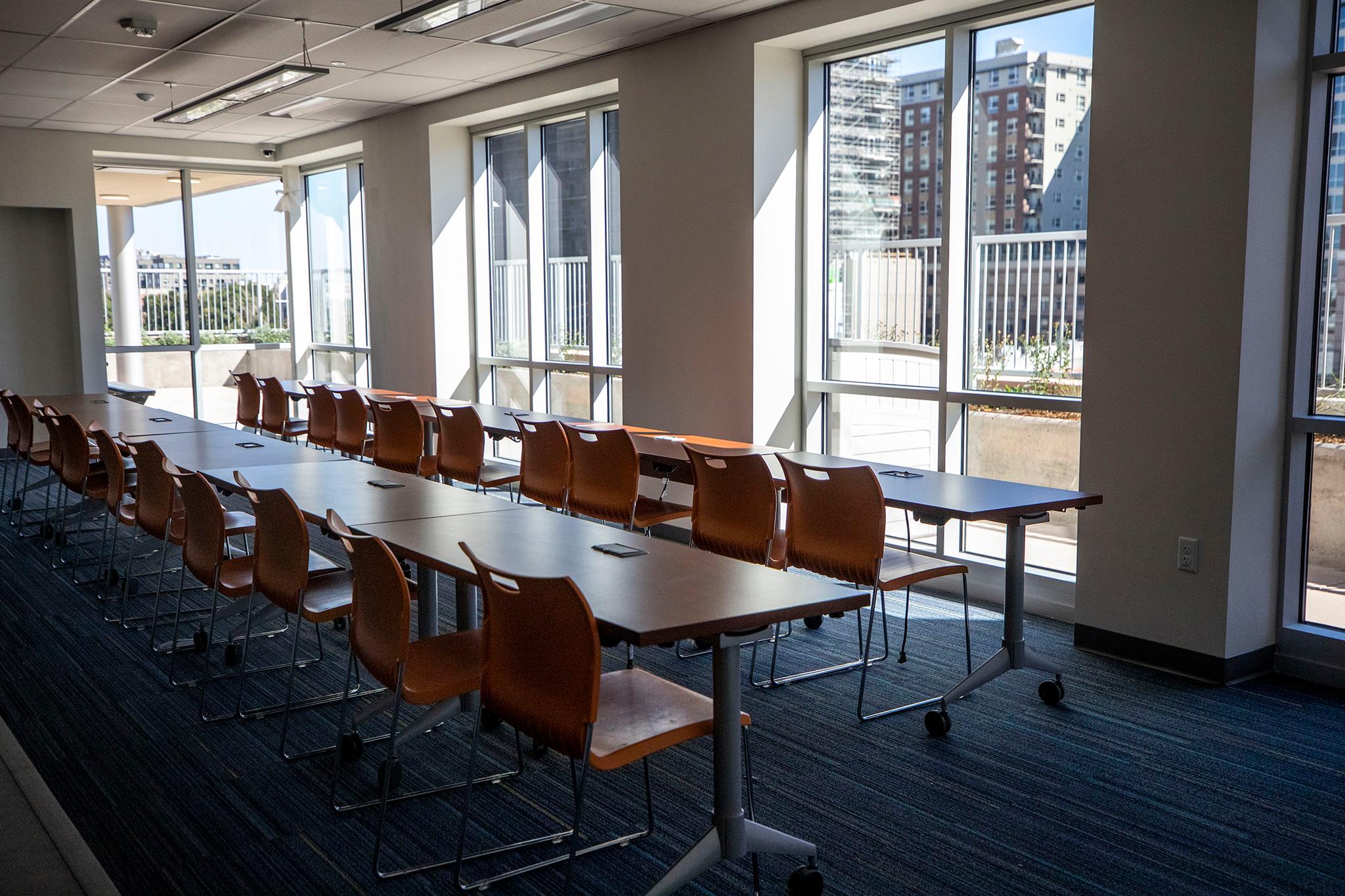
Denver is really bad at recycling, like only 18 percent of waste gets recycled or composted bad, and part of the reason is its apartments.
The city doesn't pick up from these multi-family dwellings, nor does it require them to recycle, but as an apartment-dweller myself, I had to know more about why not.
After all, a survey from the nonprofit CoPIRG found that 88 percent of Denver residents find recycling is "very important or essential." Even if the city doesn't require recycling, apartment residents might balk at the absence of recycling, right?
I started with Boutique Apartments, the company that manages the building where I live. And yes, sometimes residents do request recycling, said the company's marketing and design director Jenny Thomas in an email.
The company also manages Wheelhouse Apartments, which means that collectively they manage about 1,000 units. Only about a third of their buildings offer recycling, said Thomas via email.
Chief Operating Officer Nick Costanzo explained why so few in another statement via email:
"Wheelhouse Apartments and Boutique Apartments make it a priority to offer recycl(ing) at as many of our apartment buildings as possible. Each of our properties is unique and as such present their own challenges. Our efforts to offer recycling at 100% of our properties can be constrained by simple logistics: 1) space available for a commercial recycling bin in some of our central locations is problematic or non-existent; 2) recycling bin sizes offered by vendors are not the correct size for the space; or 3) as third-party managers we do have ownership groups that have not given approval for the addition of recycling for various reasons."

John Smidt, broker and owner of Deerwoods Real Estate Management, confirmed that in central locations like Capitol Hill, space does constrain recycling sometimes. Like Boutique Apartment and Wheelhouse, he estimates that about a third of his multi-family buildings recycle.
Some of these buildings have been designed for one dumpster," he said. "Once we put a three yard [dumpster] there for the trash, which sometimes isn't even enough, there's no safe place to put a recycling dumpster. Either it's too close to the alley or the trash people can't do it."
For some buildings, a second dumpster would stick out into the alley or there wouldn't be enough room for the trash hauler's equipment to operate.
That's not the only issue though.
"If you're directly in Capitol Hill, after about six to eight weeks, the trash company often calls us back and says they're just filling the recycling dumpster with trash."
Are these actually valid reasons that apartment buildings don't recycle? Yes, definitely, said Alpine Waste & Recycling Major Account Executive Greg Williams. That doesn't mean that it's impossible to recycle though.
"Very seldom will you see someone say 'we absolutely can't do recycling here,'" he said. "There's always a way to recycle."
As someone who's worked in property management himself, Williams says he's noticed a trend of more third-party management companies attending to multi-family buildings. These companies work by submitting bids to take care of apartments for the building owners. With that comes a lot for pressures for those companies to keep costs low.
"It's kind of the same as politics. If you have a president who's in their first term, their first few years may be more about getting re-elected, that's part of their agenda," he said. "With these [property management] companies that are hired, a large part of their goal is to make sure that they're keeping their contract and how do you make yourself look as good as possible to the owner? Keep costs low as possible."
Because these companies don't own the buildings that they're working on, sometimes longer-term investments like recycling are hard to set aside resources for. It does take time to make sure that residents don't put trash in the wrong dumpster and ensure the program is running as smoothly as possible, Williams said.
Newer apartments, often luxury ones, are doing a better job of recycling by building in infrastructure for it though. So don't lose hope dutiful apartment recyclers -- Williams thinks that eventually Denver's culture will change.












